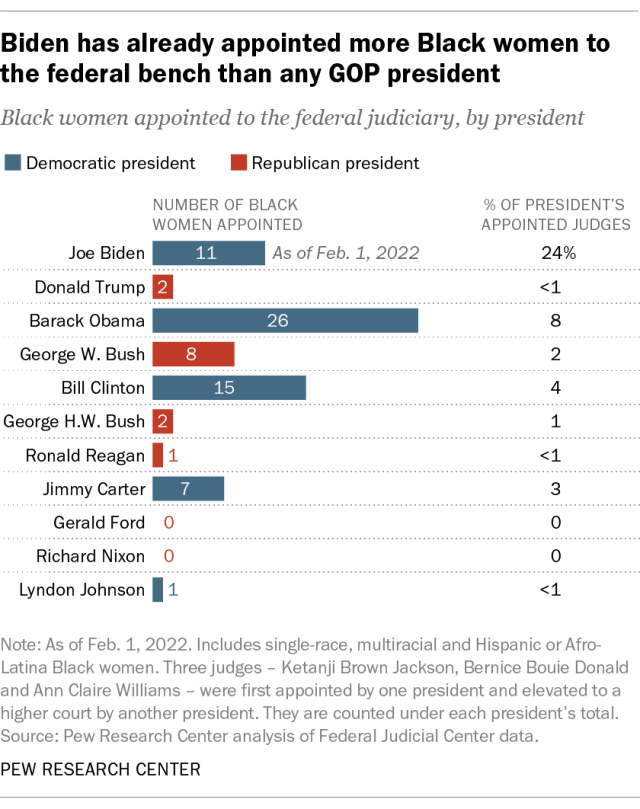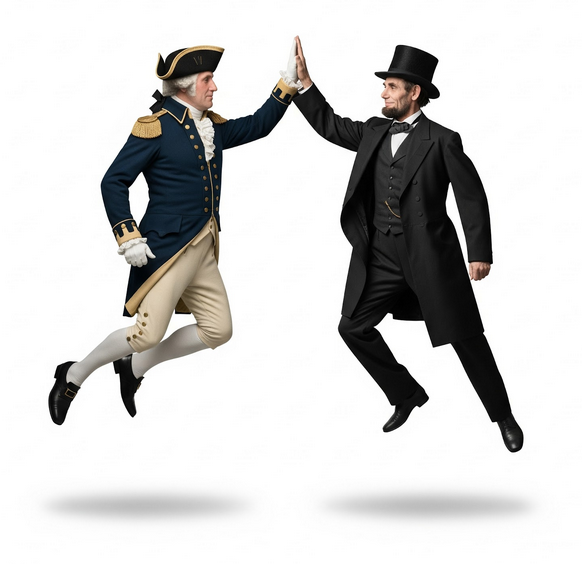Federal Judges so White and so Male
Critical Analysis
According to the data from the table above what percent of all federal judges appointed by President Biden were Black women?
According to the data from the table above after just over one year in office, how many Black women had President Biden appointed to the federal judiciary?
Identify one trend in the data from the table above.
What is the best explanation of that trend?
President Joe Biden has pledged to nominate a Black woman to the Supreme Court seat being vacated by Justice Stephen Breyer, who is retiring from the court after nearly 28 years. If confirmed by the Senate, Biden’s nominee, Judge Ketanji Brown Jackson would become the first Black woman ever to serve on the nation’s highest court and one of a relatively small number to serve as a federal judge at any level. Only 70 of the 3,843 people who have ever served as federal judges in the United States – fewer than 2% – have been Black women. What is one consequence to the justice system of this lack of Black women judges?
In general, would you say that the justice system is just? Is justice blind? Is justice the same for everyone? Are all people created equal in the eyes of the law? Additionally, explain how you know this.
Describe the steps in the nomination and confirmation process of federal judges.
Explain how the nomination and confirmation process is an example of checks and balances.
The first Black woman ever to serve on the federal bench was Constance Baker Motley, who was nominated by President Lyndon Johnson and took her seat on the U.S. District Court for the Southern District of New York in 1966. Motley was the district’s chief judge from 1982 to 1986 and died in 2005. Why do you think it took so long for a Black woman to serve?
Historically, women have accounted for a relatively small share of all Black federal judges. Fewer than a third of all Black judges ever appointed (29%, or 70 of 239) have been women. Most of the Black women who have served as federal judges to date have done so at the district court level. Only 13 have served at the appellate court level – that is, the powerful regional courts that are one step below the Supreme Court. If Biden’s nominee joins the Supreme Court, she would be its third-ever Black justice (after Thurgood Marshall and Clarence Thomas) and its sixth-ever woman (after Sandra Day O’Connor, Ruth Bader Ginsburg, Sonia Sotomayor, Elena Kagan and Amy Coney Barrett). Overall, 115 justices have served on the Supreme Court. Would you vote to confirm judge Ketanji Brown Jackson to the U.S. Supreme Court?
Learning Extension
Search the biographical database maintained by the Federal Judicial Center to see the demographic representation of all 3,843 people who have ever served as judges in the U.S. federal judiciary.
Action Extension
Contact President Biden and share your opinion on his judicial nominations.




